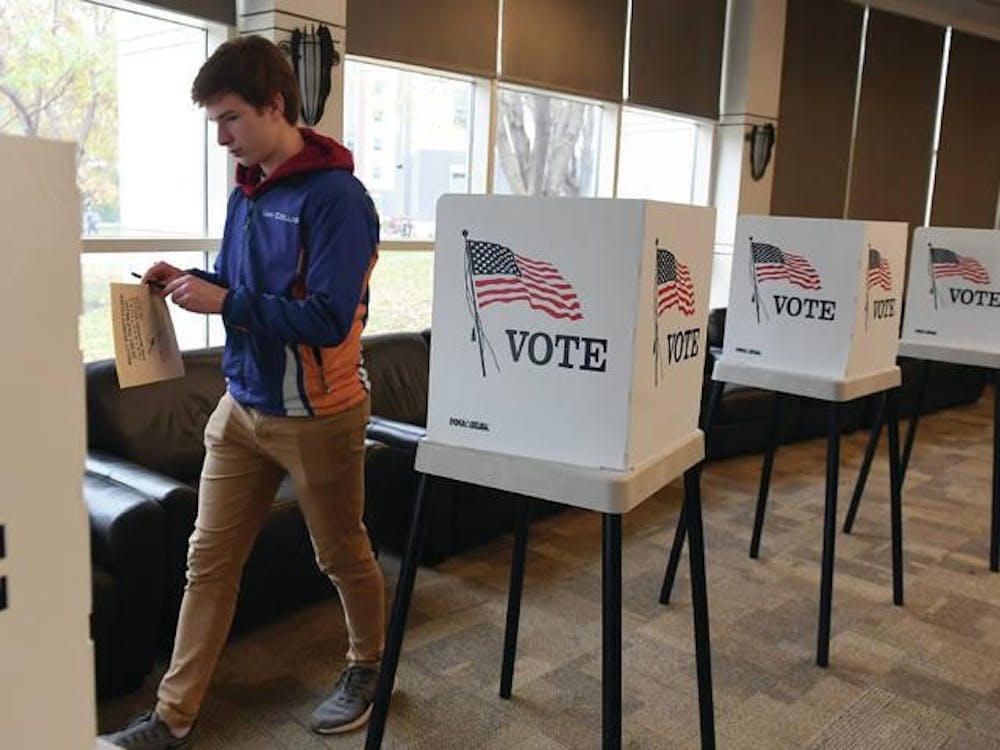Democrats in the Indiana General Assembly introduced five bills this month that would eliminate some barriers to voting, including allowing for same-day voter registration and removing all qualifications for absentee voting. These are important measures that warrant the General Assembly’s full support, but they do not go far enough in protecting and ensuring all citizens’ right to vote.
Indiana Democrats should commit to fighting for full suffrage, including for the incarcerated, and to actualizing fair elections in the state.
Throughout U.S. history, denying the right to vote has served as a potent tool of oppression. Even after winning that right, many have been refused entry to the polls, targeted for intimidation or gerrymandered to diminish their electoral influence. These traditions continue today in consequential ways.
Voting is still widely inaccessible to large portions of American society. Some low-income people cannot afford to take time off of work or meet certain voting requirements, such as ID laws. People experiencing homelessness must overcome enormous obstacles, such as proving residence or having ID, in order to vote. Those with disabilities are frequently left unaccommodated at polling stations and cannot access voting machines.
Minorities have been especially victimized by disenfranchisement. After the Supreme Court’s 2013 ruling in Shelby County v. Holder, a decision that gutted the Voting Rights Act of 1965, jurisdictions with a history of racial discrimination were allowed to purge voters without federal approval. According to the Brennan Center for Justice, purge rates were 40% higher in these jurisdictions than in others from 2016 to 2018. These voter purges, unsurprisingly, have disproportionately affected minorities because they are more likely to share the same name and more likely to have felony convictions, both criteria often used to purge votes.
Indiana’s state legislative map is heavily gerrymandered to favor Republicans. In statewide races, Republicans generally win under 60% of the vote, yet they control 80% of Indiana Senate seats and 67% of Indiana House seats. The state would be implementing an error-prone voter purge program based on incomplete voter information if not for a federal court temporarily block it in 2018, according to the American Civil Liberties Union. Considering these facts, Democrats must demand that Indiana recognizes all citizens’ right to vote in a fair election.
Democrats should also fight for prisoners’ right to vote. According to the Prison Policy Initiative, 47,000 people from Indiana are behind bars, and the state’s incarceration rate surpasses the national average. The incarceration rate for black residents is more than 5 times greater than for white residents, and the rates for Hispanics and Native Americans are also higher.
Maine and Vermont are the only states that allow prisoners to vote while incarcerated, according to the National Conference of State Legislatures. A 2019 Politico report found that Sen. Bernie Sanders was the only Democratic presidential candidate to support such a policy.
We should dispel our mistaken belief that voting is a privilege rather than a right. Under no circumstances should an American citizen lose their right to vote. The currently incarcerated deserve that right as they too are considered equal under the U.S. Constitution.
They should especially never lose that right in a prison system so disproportionately racist and propelled by outdated drug laws. After centuries of this country devising new ways to keep minorities from voting, it is time to demand that all citizens have the right to vote.
While the bills introduced to the General Assembly would make voting more accessible, Democrats must go further to ensure that everyone has an equal opportunity to vote and an equal influence on the election’s outcome. There are many issues that must be addressed, such as the state’s gerrymandered map, voter purging and voter ID requirements.
Voters in four states passed referendums to establish independent redistricting commissions in 2018. Instead of the legislature drawing the electoral map, a nonpartisan commission is tasked with the job. Unfortunately, Indiana law prevents voters from calling a referendum, so a ballot initiative would need to come from the General Assembly itself.
Government requires the consent of the governed. In a country founded on this principle, all citizens must have the right to vote. In Indiana, legislators have a duty to live up to and fight for this ideal.
Kyle Linder (he/him) is a junior studying journalism and international relations. He plans to pursue a career in media.






